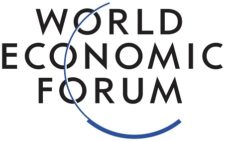The ‘Great Reset’ must include sustainability and equity
 During last year’s World Economic Forum, I tweeted a lot about economy-boosting jobs and the need for companies to focus on long term value creation that benefits all stakeholders, not just shareholders.
During last year’s World Economic Forum, I tweeted a lot about economy-boosting jobs and the need for companies to focus on long term value creation that benefits all stakeholders, not just shareholders.
And then the world changed.
When COVID hit and the world shut down, I feared that our call to create good, economy-boosting jobs would be shut down too. How do you advocate for improving job quality when millions of Americans became unemployed virtually overnight?
I was wrong.
At this year’s Economic Forum, BlackRock CEO Larry Fink confessed that he had assumed the pandemic would slow impact investing, climate change action, and other sustainability efforts. It turns out, he said, the conventional wisdom was wrong.
I guess I keep good company.
What actually happened is that the triple crises of a global pandemic, economic downturn, and (in the United States) a racial justice reckoning was a clarion call that reminded us how interconnected we are and how fragile our economy actually was, built on far too many low wage, low quality jobs that are filled disproportionately by people of color — the same jobs that are deemed “essential.” And while the existential threat caused by the pandemic is forcing us to confront the challenge of climate change, it is also forcing us to confront the systemic racism and racial injustice baked into a capitalist system that values profits and shareholder value above all else.
The scale of racial inequities in the U.S. workforce is staggering, and it’s hurting the economy. In fact, systemic racism and low quality jobs cost our economy about $2.3 trillion in lost GDP in 2018, which is 10% of our total economy. What an opportunity that represents!
While world leaders were gathered for their virtual Davos, the National Fund held an event to dig into the data around these workforce inequities. In her keynote address, Angela Glover Blackwell, founder of PolicyLink, said, “Making the GDP stronger won’t fix racism. But fixing racism will make the GDP stronger.” She went on: “By focusing on the most marginalized, we get it right for the vast majority of us.”
Over at Davos, Larry Fink put it this way: “A company that does not seek to benefit from the full spectrum of human talent is weaker for it – less likely to hire the best talent, less likely to reflect the needs of its customers and the communities where it operates, and less likely to outperform.” What’s more, Fink is asking businesses for transparency and to share their demographic data as a part of their sustainability reports.
The bottom line is that job quality is a racial equity issue. When occupational segregation is so extreme that the majority of workers in low wage, low quality jobs are people of color, we must consider it a threat to the well-being of us all.
Davos leaders spoke of the need to transition to a green economy that meets the needs of all stakeholders. Our data shows that the transition must be built around quality, economy-boosting jobs and economic justice. It is time for the Great Reset, where we redesign the social contract to honor the dignity of every human being. Because we are all in this together.





